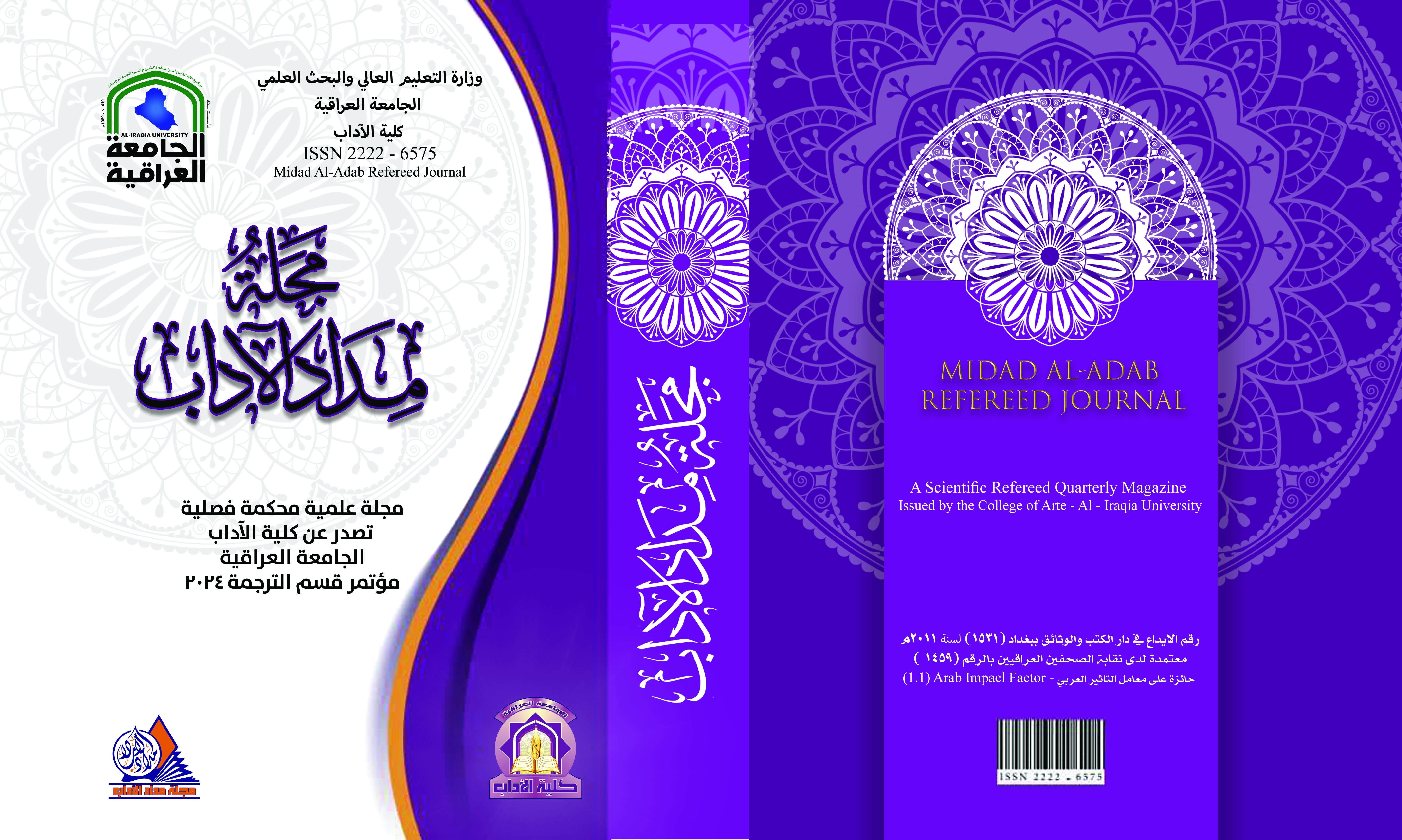A Prgmatic study of the Speech Act of complaint produced by Al-Iraqiya University students Speaking English as a foreign Language
A Prgmatic study of the Speech Act of complaint produced by Al-Iraqiya University students Speaking English as a foreign Language
DOI:
https://doi.org/10.58564/ma.v14iخاص%20بمؤتمر%20قسم%20الترجمة%202024.1401Keywords:
Key words: Speech acts ,Pragmatics, Complaints ,English as a foreign language (EFL),Al-Iraqiya UniversityAbstract
This research investigates the pragmatic aspects of complaints produced by Al-Iraqiya University students who speak English as a foreign language. Complaints are fundamental speech acts in communication, reflecting individuals' dissatisfaction with a particular situation or behavior. However, the cultural and linguistic differences between native and non-native English speakers can significantly influence the form and function of complaints. Through a pragmatic lens, this study aims to explore how Iraqi university students navigate the speech act of complaint in English, examining both linguistic and socio-cultural factors at play.
Drawing upon theories of pragmatics and intercultural communication, the study employs a mixed-methods approach. Data collection involves both qualitative and quantitative methods, including discourse completion tasks, interviews, and surveys. The analysis focuses on identifying the linguistic strategies employed by participants in expressing complaints, as well as the underlying cultural norms and expectations shaping their communicative behavior. Moreover, the study examines the impact of proficiency level, and social context on complaint strategies.
The findings of this research contribute to our understanding of cross-cultural communication and language use among non-native English speakers, particularly in the context of complaint speech acts. Insights gained from this study can inform language teaching practices, curriculum development, and intercultural communication training, ultimately fostering more effective communication between Iraqi students and English speakers from diverse cultural backgrounds.
Al-Iraqiya University, students usually complained directly.Al- Iraqiya University students don't often use strategies to soften complaints ,in addition the don’t often use indirect strategy suggesting that they might not be concerned with avoiding potential conflicts when expressing their concerns. This may be due to cultural influences or a preference for clear and straightforward communication.
Downloads
Published
Issue
Section
License

This work is licensed under a Creative Commons Attribution-NonCommercial-NoDerivatives 4.0 International License.








